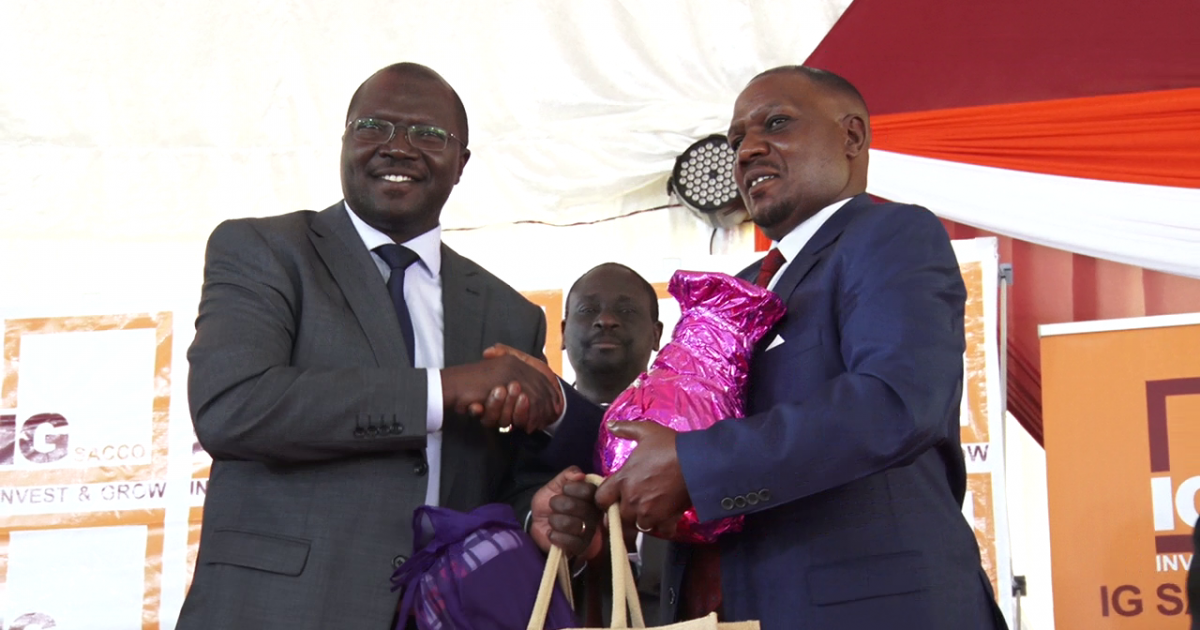The Cabinet Secretary, Ministry of Cooperatives and Micro, Small and Medium Development Simon Chelugui has challenged Savings and Credit Cooperative societies (Saccos) to support development of different value chains by providing expertise, knowledge and equipment to uplift the lives of Kenyans.
Chelugui said the National Government has prioritised maize and cereals, sugarcane, tea, artisanal fishing, dairy and artisanal mining, edible oil, coffee, housing, livestock, cotton, macadamia and avocado among other flagship areas to focus on through cooperative societies.
Speaking in Kakamega during the launch of Invest and Grow (IG) Sacco 2023–2027 strategic plan, CS Chelugui noted that cooperative societies can support the artisanal miners in acquisition of equipment that is safe and secure and transform gold mines in western province into life-changing mines.
Chelugui said he will soon convene a meeting with all CECs and Chief Officers in charge of cooperatives to discuss respective cooperative activities in counties, map out and allocate resources at the national level to support priority value chains in each county.
He said through the cooperative approach, the National Government is improving the dairy sector, which began with modernization and will follow up with upgrading of dairy processing plants in Eldoret, Kitale, Kericho, Runyenjes, Embu, Miritini, Kinangop and Nyahururu, among other regions on the list.
“We are preparing our dairy sector to increase the production of processed milk from 1.5 million litres per day to 4.5 million litres per day. We will be putting up plants in Eldoret for our export market. So we need a similar, corresponding increase in production from areas like Kakamega, Vihiga, even Bungoma with suitable climatic conditions to manage this,” he noted.
He said the government will soon launch a cotton ginnery in Busia as the Ministry of Cooperatives and Micro, Small and Medium Development works with Homabay County government to promote palm oil production.
I challenge other counties around lakes that have suitable climatic conditions to adapt and promote the growth of palm oil because that will save us a lot of money. We spend over Sh100 to Sh200 billion on importing edible oils yet we have good climatic conditions that can support growth of palm trees,” Chelugui said.
The CS said the government is promoting a culture of savings, with about 92 000 Kenyans crossing the Sh1 million mark in savings, according to last week’s SASRA report, urging Saccos to enhance financial literacy.
He noted that the cooperative movement in Kenya has mobilised savings of up to Sh1 trillion, commanding an impressive asset base of 1.5 trillion and a substantial loan portfolio amounting to Sh980 billion.
Kenya, according to the CS, has the largest cooperative movement in Africa and ranks 7th in the world, with about 14 million Kenyans registered as members of cooperative societies.
With these milestones, Chelugui noted that other reforms in the sector will promote and grow the Sacco sector to a more sustainable level.
He said the enactment of the Cooperatives Bill 2023 will provide a robust legal framework conducive to fostering competitive and sustainable cooperative sector within a devolved government system.
“The operationalization of deposit guarantee funds to safeguard members’ savings and establishment of central liquidity and shared services facilities will facilitate Sacco participation in the national payment system and promote inter-Sacco lending. The Coffee Bill and regulations, as well as the cooperative regulations, which once enacted, will set the stage to transform the cooperative sector for national social and economic development,” he added.
Invest and grow. Sacco is celebrating 46 years since its inception in 1977, with a membership of 33,724, an asset base of Sh13.2 billion and income of Sh664.2 million and a loan portfolio of Sh9.8 billion.
By Moses Wekesa




